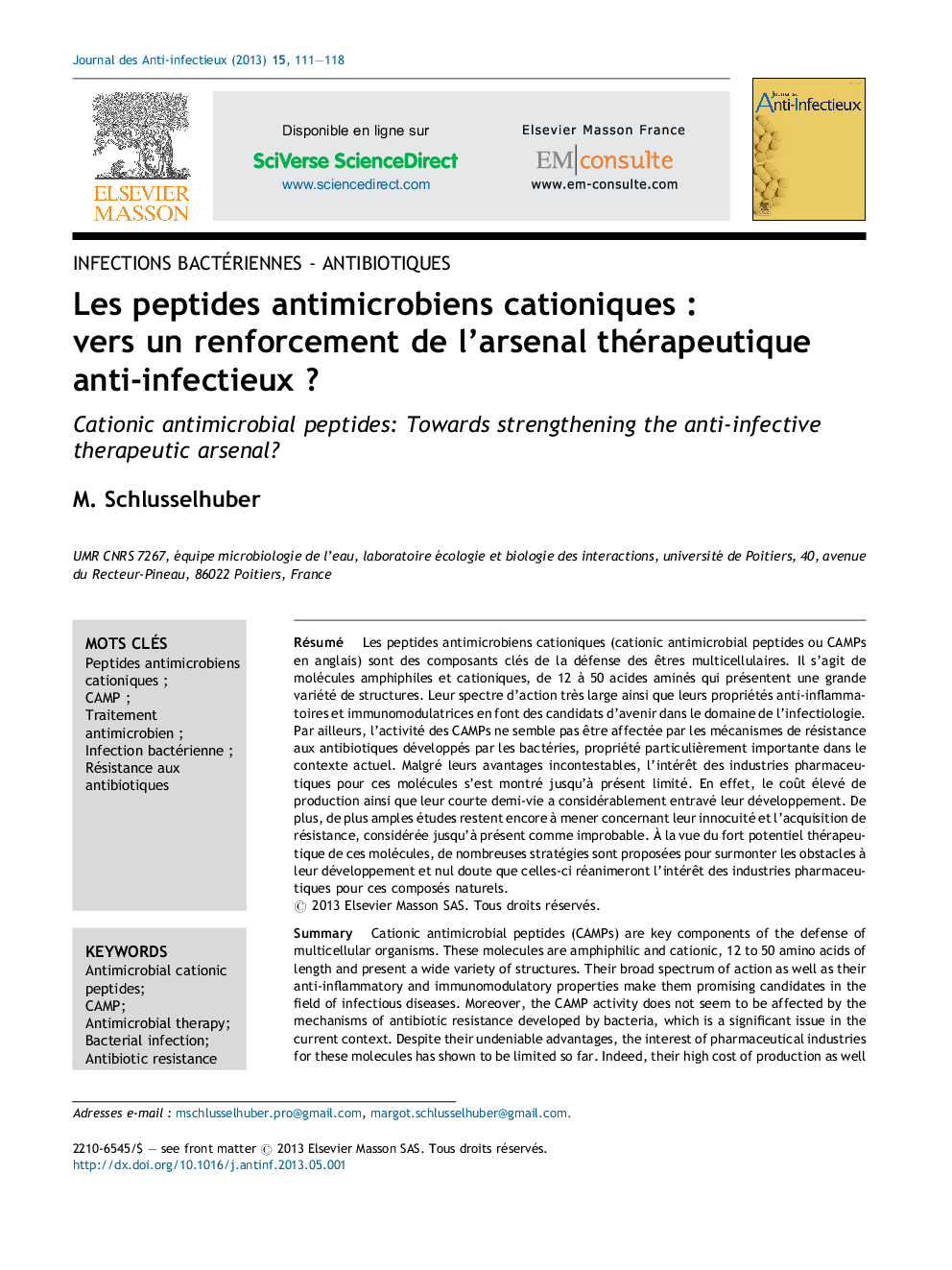| Article ID | Journal | Published Year | Pages | File Type |
|---|---|---|---|---|
| 3405429 | Journal des Anti-infectieux | 2013 | 8 Pages |
Abstract
Cationic antimicrobial peptides (CAMPs) are key components of the defense of multicellular organisms. These molecules are amphiphilic and cationic, 12 to 50 amino acids of length and present a wide variety of structures. Their broad spectrum of action as well as their anti-inflammatory and immunomodulatory properties make them promising candidates in the field of infectious diseases. Moreover, the CAMP activity does not seem to be affected by the mechanisms of antibiotic resistance developed by bacteria, which is a significant issue in the current context. Despite their undeniable advantages, the interest of pharmaceutical industries for these molecules has shown to be limited so far. Indeed, their high cost of production as well as their short half-life has greatly hampered their development. In addition, further studies are still needed about safety and the development of resistance, until now considered as unlikely. In the view of the high therapeutic potential of these molecules, many strategies are proposed to overcome the obstacles to their development and no doubt they will lead to renewed interest of pharmaceutical industries in these molecules.
Keywords
Related Topics
Health Sciences
Medicine and Dentistry
Infectious Diseases
Authors
M. Schlusselhuber,
